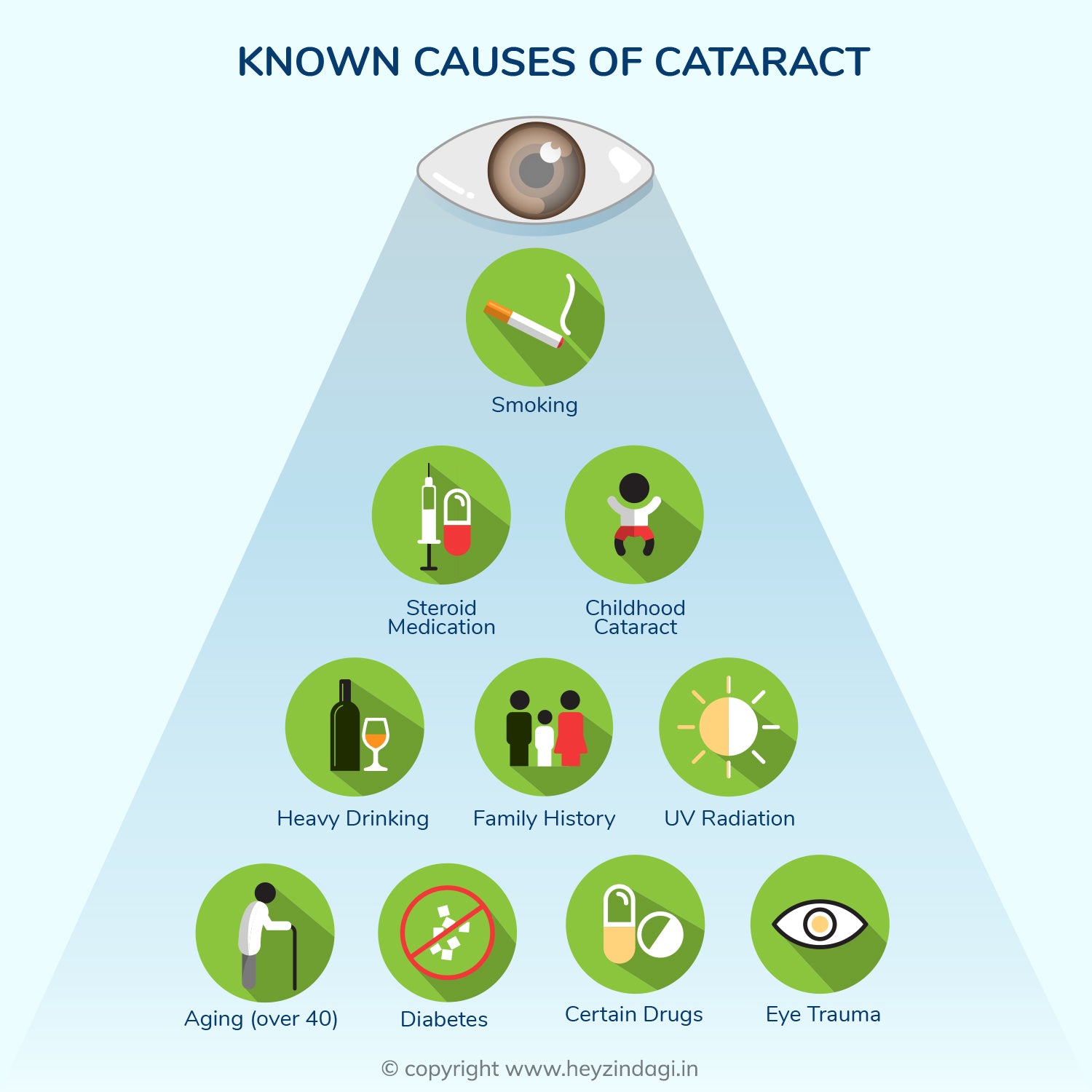WHAT IS CATARACT?
A cataract is when the normally clear lens of the eye clouds over, causing blurred vision. It is progressive, generally found in adults over the age of 60, and can be attributed to the deposition of certain proteins in the lens, causing opacity. Untreated, it is the leading cause of blindness worldwide.
WHAT ARE THE CAUSES OF CATARACT?
Some known risk factors for cataract include:
- Increasing age: After 40, the chances of developing cataract increases and seniors above 60 are at high risk.
- Diabetes
- Steroids: Some steroid medications are often prescribed to seniors for pain relief. Prolonged use of corticosteroid injections may cause cataract.
- Smoking is another unhealthy lifestyle habit that increases the risk of cataract
- Regular and excessive exposure to harmful UV radiation in sunlight
- If your parents and close family members have a history of cataract, then you might also be at risk
- Heavy drinking must be avoided to prevent cataract
- Apart from corticosteroids, uncontrolled use of drugs like allopurinol, aspirin, chloroquine may also lead to developing cataract
- People who have had a previous eye injury or eye surgery are at higher risk than others
- Though rare, cataract is sometimes seen in children, known as childhood cataract

What are the Symptoms one should look out for?
Having a cataract is often likened to seeing through a fog, or through frosted glass. Images appear hazy, and can cause visual strain. Cataracts often develop slowly, and hence you may not notice the symptoms early on. You may also observe:
- Nearsightedness
- Problems with glare, and driving at night
- Changes in the way you see color
- Ineffectiveness of spectacles and contact lenses
HOW CAN I MANAGE A CATARACT ONCE I'VE BEEN DIAGNOSED?
Initially, the following will help:
- Get regular eye exams, once every year.
- Protect your eyes from UV radiation by wearing sunglasses.
- Ensure you have the right glasses or lenses.
- Keep diabetes or any other conditions well under control.
- Quit smoking, if you do.
- Limit driving at night after glare begins to bother you.
However, as it progresses, you will require cataract surgery, especially if it interferes with your daily living. Fortunately, cataract surgery is a safe, effective procedure, and can be done on an OPD basis, which means you will be discharged the same day.
Eyedrops that claim to resolve cataracts have not been proven to work. Please consult an ophthalmologist before availing any treatment.
By Dharini Prasad
Guest Author and Student of Medicine
Bibliography
What Are Cataracts?, American Academy Of Ophthalmology | What Are Cataracts?, WebMD | Cataracts, MAYO CLINIC | Cataract Formation - A Video by American Academy of Opthamology

